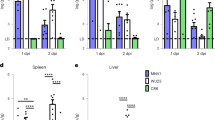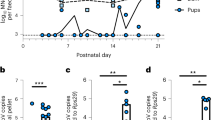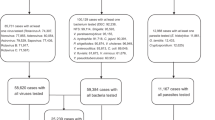Abstract
ABSTRACT: Litters of malnourished and normally nourished suckling mice of various ages were fed mouse rotavirus (105 ID50). Infection was monitored by 1) immunofluorescent staining of isolated epithelial enterocytes 24, 48, and 72 h after virus ingestion; 2) enzyme linked immunosorbent assay of daily fecal samples; and 3) determining the severity of diarrhea by noting the color and consistency of the feces and the presence or absence of staining. In malnourished mice 5 to 9 days old, all the parameters of infection were significantly greater than in their normally nourished counterparts. However, in mice 10 to 14 days old the differences in extent and severity of infection in malnourished and normally nourished animals was not significant. After 15 days of age there were low levels of virus shedding and antigen-positive enterocytes in both malnourished and normally nourished animals, but there was no diarrhea in either group. Therefore it appears that nutritional manipulation, resulting in malnutrition, does not alter the state of refractoriness to symptomatic rotavirus infection in mice greater than 15 days old.
Similar content being viewed by others
Log in or create a free account to read this content
Gain free access to this article, as well as selected content from this journal and more on nature.com
or
Author information
Authors and Affiliations
Rights and permissions
About this article
Cite this article
Riepenhoff-Talty, M., Offor, E., Klossner, K. et al. Effect of Age and Malnutrition on Rotavirus Infection in Mice. Pediatr Res 19, 1250–1253 (1985). https://doi.org/10.1203/00006450-198512000-00005
Received:
Accepted:
Issue date:
DOI: https://doi.org/10.1203/00006450-198512000-00005
This article is cited by
-
Festschrift Immunological aspects of interaction between rotavirus and the intestine in infancy
Immunology and Cell Biology (1988)



